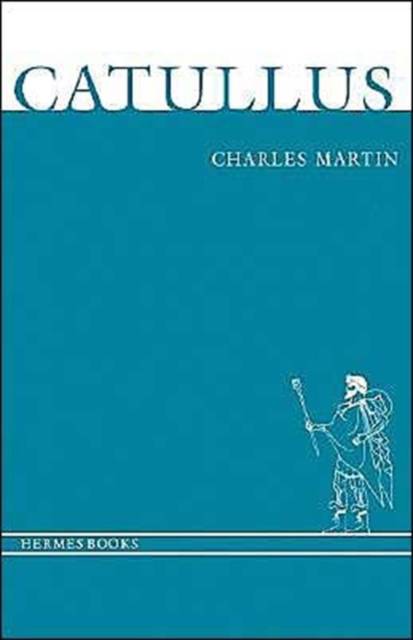
- Afhalen na 1 uur in een winkel met voorraad
- Gratis thuislevering in België vanaf € 30
- Ruim aanbod met 7 miljoen producten
- Afhalen na 1 uur in een winkel met voorraad
- Gratis thuislevering in België vanaf € 30
- Ruim aanbod met 7 miljoen producten
Omschrijving
The most popular of the Roman poets, Catullus is known for the accessibility of his witty and erotic love poems. In this book Charles Martin, himself a poet, offers a deeper reading of Catullus, revealing the art and intelligence behind the seemingly spontaneous verse. Martin considers Catullus's life, habits of composition, and the circumstances in which he worked. He places him among the modernists of his age, who created a new ironic and subjective poetics, and he shows the affinity between Catullus and the modernists of our own age. Martin offers original interpretations of Catullus's poems, viewing the love poems to "Lesbia" as a unified, artfully arranged poetic sequence, and the short poems, often dismissed as unworthy of serious critical attention, as the irreverent products of a sophisticated poetic innovator. Unlike Horace, Virgil, and Ovid, Catullus did not influence our literary culture until the beginning of the modern era, but he is now regarded as a poet who speaks to our age with a singular directness. Pointing to Catullus's self-awareness, playfulness, and comic invention and to the elaborate complexity of his experiments in poetic form, Martin gives both the scholar and the general reader a fresh appreciation of his poetic art.
Specificaties
Betrokkenen
- Auteur(s):
- Uitgeverij:
Inhoud
- Aantal bladzijden:
- 192
- Taal:
- Engels
- Reeks:
Eigenschappen
- Productcode (EAN):
- 9780300052008
- Verschijningsdatum:
- 27/05/1992
- Uitvoering:
- Paperback
- Formaat:
- Trade paperback (VS)
- Afmetingen:
- 139 mm x 209 mm
- Gewicht:
- 263 g

Alleen bij Standaard Boekhandel
+ 111 punten op je klantenkaart van Standaard Boekhandel
Beoordelingen
We publiceren alleen reviews die voldoen aan de voorwaarden voor reviews. Bekijk onze voorwaarden voor reviews.







